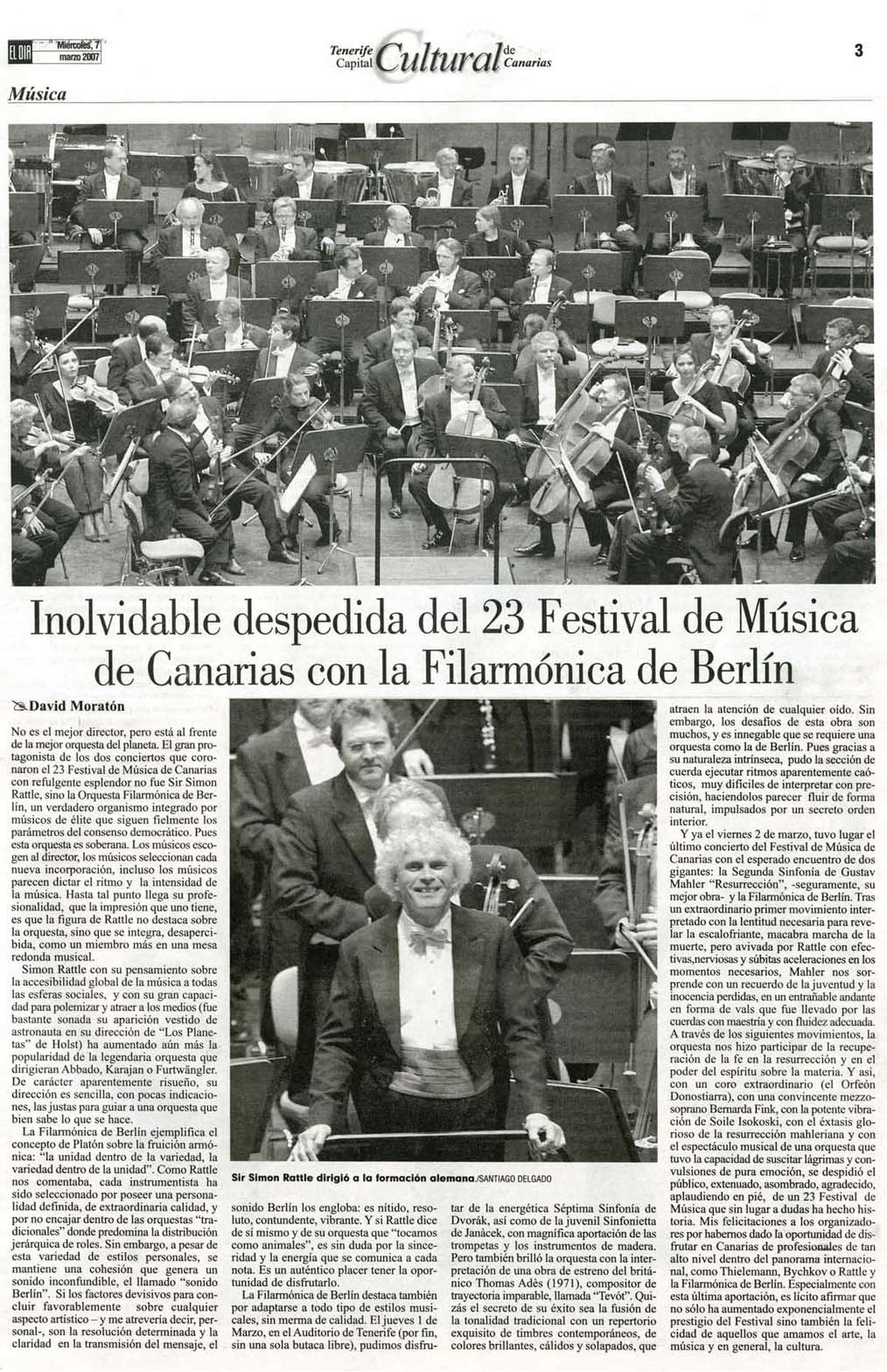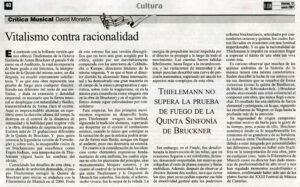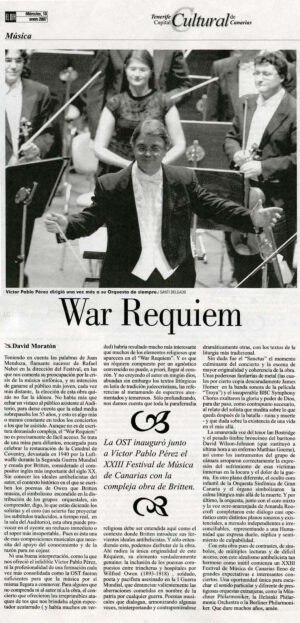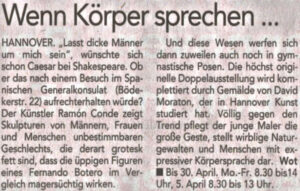Unforgettable Farewell from the 23rd Festival of Music of the Canary Islands with the Berlin Philharmonic
By David Moratón
He is not the best conductor, but he is in front of the best orchestra on the planet. The great protagonist of the two concerts that crowned the 23rd Festival of Music of the Canary Islands was not Simon Rattle, but the Berlin Philharmonic Orchestra, a true organism integrated by elite musicians who religiously follow the patterns of democratic consensus. Since this orchestra is sovereign. The musicians choose the director, the musicians decide each new incorporation, including the musicians seem to dictate the rhythm and the intensity of the performance. Without a doubt, this reaches a professional level, that the impression one has is not that it is about the figure of Rattle who conducts the orchestra, but that it integrates, disappears, like a member more of a round musical table.
Simon Rattle with his thinking about the global accessibility of music to all social spheres, has the capacity to polemicize and attract the media (the man apparently took his appearance dressed as a sailor from the operetta “The Merry Widow” by Holst) has further increased the popularity of the legendary orchestra that directors Abbado, Karajan or Furtwängler led. Of apparently simple character, but his direction is simple, with few indications, just enough to guide an orchestra that well knows what it does.
The Berlin Philharmonic exemplifies the coherent idea of the great Germanic harmonic: “unity within truth, truth within unity.” As we commented, each instrumentalist has been selected for extraordinary quality, not for standing out within the group, but for their ability to generate a sound of authentic quality, definite, of extraordinary quality, and for standing out within the group of “selected ones” where the problem of the distribution of genius arises. Since each musician maintains a cohesion that generates a sound of absolute quality, as we have named it, “the absolute limit of perfection in Berlin.” The decisive factors to achieve this extraordinary result – from the artistic aspect – and for the warning of the deterioration of the message, as determined by the clarity in the transmission of the message, as determined
by the clarity in the transmission of the message, which determines the attention of any ear. However, the challenges of this work are many, and it is impossible to require an orchestra for all of Berlin. Since thanks to its intrinsic nature, it could be the executive section of apparently chaotic rhythms, extremely chaotic, very difficult to interpret without precise methodology, having lost the impulse from a secret interior order.
On Friday, March 2nd, the last concert of the Festival of Music of the Canary Islands took place with the spectacular encounter of two giants: the Second Symphony of Gustav Mahler “Resurrection”, surely his best work, and the Berlin Philharmonic. After an extraordinary first movement interpreted in an exceptional way by the exemplary conductor, the scalding Rattle made march of death, but revived with effective, nervous effects and skillful selections in the necessary moments, which surprise with a memory of youth and the innocence lost, in an entrancing walk in the form of a waltz that was taken by the scores with mastery and with adequate fluid adequacy, this orchestra made us participate in the reception of the memory, in the faith in the resurrection and in the power of the spirit over matter. And yes, with that extraordinary (the “Orfeón Donostiarra”), with a convincing mezzo-soprano Bernarda Fink, with the powerful vibration of Solile Isokoski, with the glorious global existence of the resurrection maihatiana, and with the capacity of the orchestra that had the ability to awaken tears in the eyes of the audience, moved, astonished, astonished, impressed, ultimately, the success of the 23rd Festival of Music that in place has undoubtedly given historic feats, but has also given the opportunity to disseminate the culture of the Canary Islands internationally. As well, within the international panorama, certainly, the director Simon Rattle and his Berlin Philharmonic, and this last appearance, it is right to affirm that not only have they increased substantially the prestige of the Festival but also the happiness that we love art, and music in general, culture.
El Dia, Tenerife, Spain
7 March
2007






Reviews
There are no reviews yet.